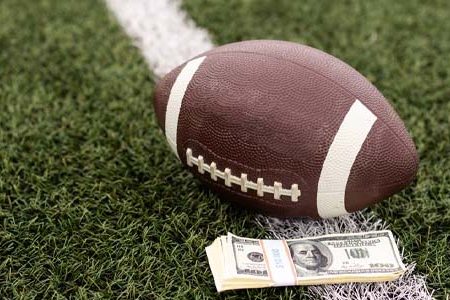Wearable technology is changing how people observe, engage with, and even place bets on games. With smartwatches, fitness bands, and performance trackers taking intricate and detailed measurements on fans and competitors alike, emerging queries on the impact on Florida sports betting websites and the general wagering landscape seem inevitable.
This FAQ captures the most salient inquiries related to this nexus, from elementary use cases to the scrutiny of potential regulations. The interplay of innovation and regulation is most salient to bettors, technology developers, and analysts, as described herein from the most critical and relevant issues, including how data captured by wearables could affect odds and risk control, the overall user journey, and prospective features of the wagering application. The intention is to shed light on the frontier of innovation and regulation, as well as what is poised for the future.
Starting with the Basics: Wearables and Betting
What exactly counts as wearable technology in sports betting?
Wearable technology–which includes smartwatches, fitness trackers, GPS vests, and biometric sensors–captures data in real time about a person’s bodily indicators. This data, in theory, could be used in predictive modeling for analyzing a sports team or for sports betting. For example, a sports bettor could theoretically assess predictive outcomes based on a player’s heart rate or fatigue levels, although this is still theoretical and highly regulated.
How could wearables impact betting decisions?
Data generated from wearables may assist sports bettors in assessing performance trends over a span of several games and evaluating performance in terms of recovery, fatigue, and exertion levels for a given game. This could enhance pre-game analysis, although sportsbooks cannot presently access data pertaining individual athletes. Privacy and ethical concerns regarding insider information are simply unaddressed.
Are sportsbooks already using wearable data?
Most larger sportsbooks access official data feeds from the leagues. Some sports betting analytics firms use aggregated data from wearables in odds modeling. This is a gray area. For example, in Florida, where the legislative framework is ambiguous, sportsbooks are advised to be cautious in utilizing these analytics.
Is wearable tech data accurate enough for betting?
Consumer wearables offer a better user experience, but data capture accuracy is still inconsistent for different brands and use conditions. Professional trackers, which offer better precision, are often proprietary to the teams. For betting markets, reliability and transparency are essential before adoption.
Can individuals use their own wearable data to inform bets?
Certainly, a gambler could utilize individual metrics, such as their own sleep data or activity levels, to determine the optimal time to place a bet to increase the chances of a favorable outcome. However, for very valid reasons related to privacy and informed consent laws, no Florida operator incorporates health data into their systems.
- Florida-based BetUS offers the most secure and user-friendly platform for tracking odds and educating users on responsible gambling. They provide tools to help users track their gambling and make data-driven decisions without gambling irresponsibly.
How the Process Works: Data and Regulation Flow
Who owns wearable data when it comes to sports?
Athletes and teams usually hold the contractual rights to the data, which is often governed by league agreements. On the other hand, fans have ownership of their data. Without player-specific biometrics, which would require their consent and league consent, betting platforms are restricted by law.
Could wearable data influence live betting odds?
In theory, yes. If wearable feeds were public, odds could adjust based on fatigue or injury signals. However, that kind of integration is currently possible only by violating the majority of league standards and gambling on the data.
How might wearable insights enter sports betting systems?
These could arise indirectly—through analytics firms providing generalized performance matrices. These aggregated and de-identified statistics could inform the algorithms or trend models employed by sportsbooks.
Are there security concerns?
Certainly. Wearable devices’ data often traverses cloud storage. Any cloud breach could compromise sensitive data about one’s health. Should sportsbooks choose to integrate such data sources, robust cybersecurity measures will need to be in place.
How do regulators in Florida view wearable data in betting?
Florida has not yet developed explicit regulations concerning the use of sports data derived from wearables in betting contexts. These regulations would most likely pertain to general gambling legislation and privacy laws within the state and focus on safeguarding the consumer and equitable play.
- Florida mobile betting apps could theoretically include wearable-based personalization in the future — for example, using activity-based engagement or predictive insights. But such features would need explicit consent, transparency, and state approval before rollout.
- BetUS focuses on the promotion of safe and responsible wagering. Know the standards on responsible gambling, data protection, and transparency so that you can place bets in privacy-respecting environments.
The Mechanics Behind It All: Data, Devices, and Odds
How do wearables collect and share data?
Wearable technology is outfitted with sensors that monitor physical activity, heart rate, body temperature, and blood oxygen levels. Most of this information is saved on the device or transferred to mobile applications that pair with the device and upload the information to cloud servers. These servers provide a conduit to anonymization and data processing that occurs away from the device user, although direct analytics are not performed.
Can sportsbooks legally purchase wearable data?
Without user consent, and with adherence to privacy legislation such as HIPAA or laws analogous to the GDPR, aggregated, non-personal data may be provided to analytics companies. Nonetheless, individual biometric data remains secured from any potential transactional activity. Data protection applies to both direct identification and indirect identification methods.
Could wearables improve the accuracy of betting algorithms?
Integrating biometric data with conventional statistics may improve predictive modeling. For example, some analysis of recuperation rates and acceleration data may reveal fatigue patterns, which could be useful for odds adjustment, provided the information is legally obtained.
Is wearable data ever used for fantasy sports?
Asynchronous betting is among the futuristic betting propositions via data-augmented fantasy ecosystems. Some platforms allow participants to integrate wearables voluntarily. Contemporary fantasy participants may use betting props. With sensors, players may demonstrate effort and consistency, adding to realism.
- BetUS offers the latest in data-driven betting trends. Live analytics and odds monitoring analytics, in conjunction with highly educational materials on responsible wagering, provide a strong technological bridge and wagering.
Common Issues and Ethical Challenges
What privacy issues arise from wearable data in betting?
The principal concern is consent. Athletes are required to consent to the sharing of their biometric information. Use of biometric data in the absence of consent would infringe privacy laws or breach the contract with the athlete. Likewise, bettors should be confident that their data is not shared without their consent when accessing stake-linked fitness tools.
How might wearable data create unfair advantages?
If one party had access to live biometric data of the athletes before others, this would be akin to insider trading and would disrupt the sports gambling market. Since this is misconduct, no legal bookmaker is able to exploit biometric data from wearables to inform betting.
Could wearables lead to gambling addiction or riskier behavior?
Yes. Constant feedback on data can lead to excessive analysis and compulsive wagering. The balance is crucial to the well-being of your gambling. BetUS provides useful features like self-exclusion and deposit limits to promote responsible gambling.
How can users protect their own wearable information?
Review the permissions of the apps. Disconnect the share data that isn’t necessary. Wearable devices that have gambling features should not be connected to gambling apps until the relevant privacy policies are well-defined. Ensure the gambling platform is legitimate.
- BetUS promotes responsible gambling and data privacy. For transparency in gambling, BetUS provides safety resources.
Future and Complex Developments
What Is KYC and Why It Matter in Florida Online Sports Betting?
KYC — Know Your Customer — verifies user identity before allowing betting. It prevents fraud, underage gambling, and money laundering. For Florida online sports betting, wearable-linked accounts could simplify KYC through biometric authentication, though that raises privacy debates. Accurate KYC ensures platforms meet legal obligations and safeguard user funds.
Could AI and wearables combine for personalized betting?
Yes, though early. AI could scale intelligent integration of wearable emotional and fatigue monitoring biosensors and recommend breaks. Such integrations would protect and promote responsible betting, rather than likely outcome predictions.
How might teams use wearable data to influence fan engagement?
Apps could enable teams to share anonymized performance data showing how varying player effort alters game results. Such data could capture informed fans to legally fair betting sites.
Will wearable betting ever become mainstream?
Not in the near future. Legal, ethical, and tech troubles will still persist. There will still be partial integrations in the upcoming years as variable experience data, consumer engagement, and experience and data fusion improve.
- BetUS is focused on ensuring the safe adaptation to new betting technologies.
Related Resources
Those who are interested in a more in-depth analysis may wish to refer to the following works:
- Responsible Gambling Center by BetUS — suggestions and resources to help gamblers balance their betting tendencies and betting tools.
- Florida Gaming Control resources — information on the state supervising betting regulations.
- Wearable technology by Statista and Deloitte — insightful reports on compliance and adoption within the range of wearable health technology.
- Data Ethics in Sports Analytics — discusses the implications of monitoring athlete performance on privacy.
Discover the intersection of ethical issues, AI, analytics, and consumer technology in the evolving landscape of sports betting.
Your Questions Answered — Your Success Starts Here
The link between wearable technology and Florida sports betting is evolving fast, but informed bettors hold the advantage. Staying aware of privacy standards, data ownership, and regulatory developments ensures a safer experience as innovation unfolds.
Whether you’re exploring new betting platforms, tracking performance metrics, or simply curious about the future of sports analytics, credible sources matter. BetUS continues to lead with transparent practices, responsible gambling features, and educational content that puts you first.
Explore responsibly, use technology wisely, and remember: betting should always be entertainment — not obligation.
Join BetUS today and make smarter, safer, and more informed plays.












